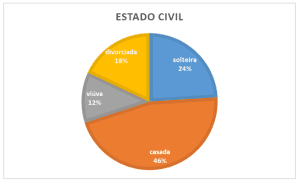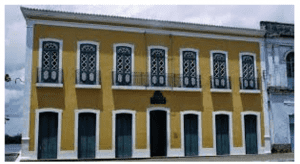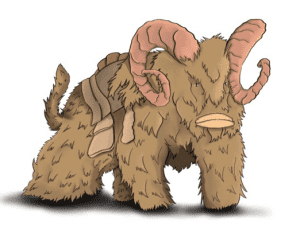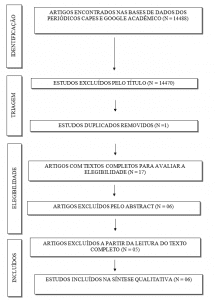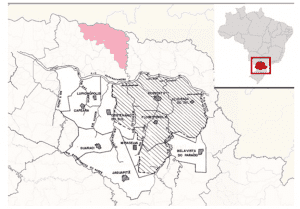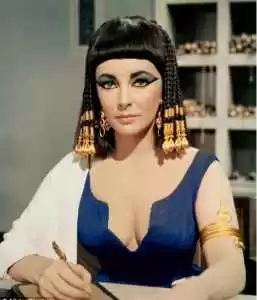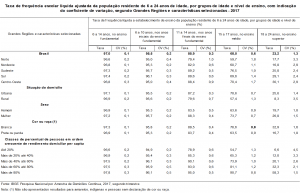ORIGINAL ARTICLE
RIBEIRO, Jakson dos Santos [1]
RIBEIRO, Jakson dos Santos. Public masculinities in Princess Of The Sertão: Behaviors and profiles of men during the First Republic in Caxias/MA. Revista Científica Multidisciplinar Núcleo do Conhecimento. Year 05, Ed. 12, Vol. 07, pp. 75-91. December 2020. ISSN: 2448-0959, Access link: https://www.nucleodoconhecimento.com.br/history/princess-of-the-sertao
SUMMARY
This text aims to analyze the enunciation of public masculinities during the experience of the First Republic in the city of Caxias, Maranhão, the light of the city’s press. Thus, the objective of the research is to problematize the discourses and their implications in the definition of this model of masculinity in Caxias. For the development of the research, the methodology of discourse analysis was used, which would call the meanings of the word and the social meanings. In this sense, we identified that these practices of masculinities were the results of the discursive strategies constituted in the webs representative of the Caxiense – individual who was born in Caxias press, articulated to the nation and citizen project, to the senses of progress, body and city marked by gender. Thus, throughout these analyses, we identified as a result that such masculinities constructed discursively were in dialogue with the everyday male experiences of the Caxiense context belonging to our historical-social reflection.
Keywords: Speech, press, masculinity, ideal.
INTRODUCTION
Thinking about the size of the press, we noticed that “the newspaper, the magazine and the poster – printed word vehicles – enhanced consumption of every order. Despite these advances, the Brazilian press was still far from its “consolidation phase” as Juarez Bahia and even the “great press” points out, as Nelson Werneck Sodré states.
In this way, when thinking about the Caxiense press during the First Republic, we seek to highlight in our analyses the issues focused on the daily life of the city of Caxias, in republican times, as well as the discourses that circulated about the ways of thinking the concepts of masculinity and public men. In this compass it is important to point out that these masculinities were within a premise of order (ideal) and disorder (real). A possible factor to be perceived in the light of the representations of these discourses and images present in these journals. That’s why Roger Chartier points out that:
[…] first, the clipping and classification operations that produce the multiple configurations thanks to which reality is perceived, constructed, represented; then the signs that aim to make recognize a social identity, to display an identity proper to being in the world, to symbolically mean a statute, an order, a power; finally, the institutionalized forms through which ‘representatives’ incarnate in a visible way, ‘present’, the coherence of a given community, the strength of an identity, or the permanence of a power. (CHARTIER, 2002, pp. 61-80).
In this sense, we can think of how the newspaper, O Paiz, approaches, for example, the role of journalists in the development of information.
The journalist has in society a much deeper influence than that of the master school and much more serious responsibility. It is the newspaper that refers and explains to the people the different phenomenos of their political life, of their social life, of their economic life.
It is the newspaper that criticizes institutions and customs.
It is the newspaper that establishes the criterion by which facts of civil life and moral life must be judged.
It is the newspaper that sets the crowd the point of view on the high issues of honor, dignity and duty. (JORNAL O PAIZ, June 26, 1904, Anno II, number 75, p.03).
In this case, the discourses are shaped so that they are not infiltrated by other interpretations, because this could derail the very game of interests by which the producers of these discourses launch on this linguistic game. The idea is to make these discourses framed in isolated spaces regarding multiple meanings, that is, by protecting them from infiltration by the author’s own intonations, this simplifies and consolidates the individual linguistic characteristics, such as the interests of the producers of these discourses.
For Bakhtin, the discourses are influenced by the economic conditions of the social groups that issue them. In each epoch, these aspects must be taken into account, as they are points of measures to evaluate the degree of interests inserted in the discursive thesis of the discourses produced. In this sense, the language records “the impressions of the discourse of others and the personality of the announcer, the types of socio-ideological communication changing in the course of history manifest themselves with a special relief”. (BAKHTIN, 2006, 157).
Socrates Nolasco (1993), when he thinks about the idea of violence after this reality that we are analyzing, brings us important contributions to discuss, for example, how the social validity of “aggression has become for men into synonymous with initiative. Embodied in their identities, aggression became, for a man, an element of constitution that, overlaid with virility, produces the “machos.” (NOLASCO, 1993, p. 76).
The way the Republic materialized in Brazil, in its early years, may actually be constituted as José Murilo de Carvalho pointed out in his work Os Bestializados, although this bestialization was experienced in several ways, especially in the desire to be a Republic. Thus, as I leafed through the pages of the Caxiense newspapers to decipher the behaviors, the male profiles, the gender issues related to the world of men and their intersectionalities, I realized how much the Republican discourses were present, mainly interspersed between the desires to manifest an ideal nation.
As Durval Muniz de Albuquerque affirms, within daily life, gender practices, in the ways “[…] of being a man are not determined neither by genitality nor by codes of sexuality. The genre is neither natural, being a historical and cultural creation, nor is it completely tied to a dominant order of prescriptions. ” (ALBURQUERQUE JUNIOR, 2003, p. 08).
In this case, the republican ideal constituted within the First Republic manifested itself in several ways in Brazil. This is due to the very dimension of the country, as well as the forms of communication in that context, because even with the renewal of typographies it was still possible to check places whose newspaper production used rudimentary techniques. This, however, did not prevent the press from being used as an interlocutor of Republican ideals. Through this question, analyzing the discourses given by the creators of the Ideal Nation, this research – intertwined with gender theories, especially with studies aimed at understanding the representations about the figure of man and male performances – seeks to understand how the Caxiense press represented what was the ideal of masculinity along the pages of the main newspapers, the ideal of a man who should present himself in the social game of the city in that context.
Since, when walking through the pages of these newspapers that circulated in Caxias during the First Republic, we perceive a strong representation of the ideal ways, of how this man should behave in the republican regime that appeared in the country, especially when it is perceived that the periodicals sought to highlight what postures are acceptable in public places, in spaces of sociability and, also, what principles related to the idea of honorable man should coexist with this man within his social relations , in addition to strengthening the care with its high control in the face of disagreements, caused by various reasons.
Therefore, it is noted that it was sought to impress on the social scene, from the practices of individuals, the notion of order and disorder, which denotes in this perspective the objectives of building a modern city in order to contribute to achieve the progress and development of the country at that time.
Thus, we can perceive that the press sought to present the existence of two types of profiles: the first are the subjects we present in the note used at the beginning of this discussion, representing the men belonging to the popular segments – these, in the eyes of the press, are subjects seen as rowdy individuals, as a counter model to the ideals of order and progress so exalted in the period of the First Republic.
In this case, when looking at the newspapers surveyed, referring to the first Republic, in Caxias/Ma, we realize that Caxias, represented in these pages, is a city of progress, order, discipline, development, and also a city that afloraentre through discourses a diversity of behaviors that intertwine between the behaviors said and understood as ideals, as well as among those understood and understood as contraventores.
The procedure assumes that distance is taken in relation to the principles that founded the social history of culture in its classical meaning. A first variation was marked in the face of a narrowly sociographic conception that postulates that cultural cleavages are necessarily organized according to a previously constructed social perspective. It is necessary, I believe, to refuse this dependence that relates the differences in cultural habits social oppositions given a priori, either in the scale of macroscopic contrasts (between the elites and the people, between the dominators and the dominated), or in the scale of minor differentiations (for example, between social groups hierarchised by the levels of wealth and professional activities. (CHARTIER, 2002, p. 70).
The Princess of the Sertão, as the speeches present through the press, through the newspapers, is a city that also lived the evils of being a center of economic expressiveness, because problems such as lack of security are elements that were present in the perimeter of the city.
The discourses produced in these pages imprint an identity that is on the paths of development, but that still experiences the principles of good morality. Caxias is a city in which people experience religious principles and, even more, practice the teachings that are presented by a religious discourse.
The forms of enunciation of discourses must be taken into account, because the analytical tendency of indirect discourse is manifested by the fact that the emotional and affective elements, which are also present in the constitution of these discourses, “are not expressed in the content, but in the forms of enunciation”. (BAKHTIN, 2006, p. 199). Thus, Bakhtin draws attention to the weight of words, they act and interact in multiple senses, due to the force of characterising meaning, which is reinforced in the same way as their tonality or their typical value.
In this case, the preparation of the aforementioned gains contours in the narration, to the point that it can give the narrative context features and shades in which the discourse cited, while preserving the author’s own intonations, will conduct the narrative exclusively within the limits of optics.
The meaning of discourse is constructed from the perspective of giving the subject contributions, which, according to the producers of these discourses, are “essential” for the subjects in the social space in which they are inserted. “The fate of the word is that of the society that speaks.” (BAKHTIN, 2006, p. 199). The word within the discourse is an ideological phenomenon par excellence, and accompanies the development of the city and modernity that is established in the city space.
Thus, we can add that discourses have a disciplinary power that enable the manufacture of a reality, of a subjectivation subjectivation. Discourses function as devices that exist as a practice.
THE PUBLIC MAN THE CITY MAN
The educational formation among the members of the elite has become throughout the process of creating social distinctions, a vector to print, in the social bulge, aspects of differentiations between the holders of power and the so-called popular segments. The elite boys had a certain destination for training as doctors and lawyers. These professions held, mainly, in this context of the Republic, an aspect of affirmation of the capacities of these men to assume tasks in the public space.
Thus, to be a lawyer, for example, would be to have an expressive symbolic and cultural capital, because it represented to achieve a different status with the other men of society. A preponderant fact in the Brazilian social imaginary, but that was imported from Europe to the reality of Brazil.
In this case, the importance given to education by the more affluent segments of society was made in an expressive way, because it meant reinforcing the social distinction before the other. The government would be fine and, even more, the elite would be fine, if it were made up of young men formed to assume positions consisting of social meaning and power before society.
In Caxias, for example, when it was news that a new lawyer or doctor had achieved the training, that is, obtained the diploma, there were tributes in the press by other lawyers, referring to this new man belonging to the world of laws.
Bachelor
He has just received a bachelor’s degree in law from the Faculty in Recife, our talented friend José Martins de Freitas, who is already in the capital of this state of travel here. We look forward to it, as your illustrious that Dr. Jesuino Freitas and Exmª also expect. Family to the quaes we compress for the intense joy of knowing that they have reached the end of life academy this distinct young man, who will enter the practical life being the bearer of a responsible name.
Greetings to the Bachelor and illustrious Family. (JORNAL GAZETA CAXIENSE, December 22, 1893, Year VII, number 86, p. 02).
The young caxienses who stood out were presented by the press as models to be followed, the children of elite members who went out to study in the main centers, for example, Recife, were referred to as symbols of the ideal way of how other young people should understand their role as citizens. The intention, as we noted in the above-mentioned news, was a spectrum to think of a nation of wise men, capable of leading the country on the pulse of order and well-being.
Brazilian men who have adhered to both colonelism and tenentism have very similar profiles, even in the case of two different moments in history. In both, the guiding thread for the composition of social identities was committed to accumulation with the accumulation of goods and social prestige. (NOLASCO, 1993, p. 93).
In this case, when the young man became a man of letters, a man of laws, the newspaper still publishes that the achievements of the young bachelor did not cease, being even more exalted by the local press. From this perspective, the newspaper presents a page with the praises of good luck desired by other lawyers in the city.
In this case, the newspaper Gazeta Caxiense publishes the tribute, at that moment, to Dr. José Martins de Freitas, who was inserted, from the graduation, to the group of men with social prominence, because of his training. Remembering that the bacharéis were seen as prominent men, seen to the prestige constituted to the professions of lawyer and doctor. At the time, he is exalted for having improved his mental faculties, in which he, according to the newspaper, cultivated in a very expressive way his potentials.
Dr. José Martins Freitas, who has just been honored by the Law School of Recife, is one of those few young people, who bring together to a vigorous intelligence and well cultivated the civic virtues that both nobilitam and engrade man in society.
Serious, reflected and straight characteristic, the young Bachelor has already revealed himself, in the few acts of his public the man […]
Be it, for well among us […] whose services long awaits the future of the fatherland. (JORNAL GAZETA CAXIENSE, January 1, 1894, Year VIII, number 89, p. 01).
It is perceived that José Martins Freitas was able to support, within the social game, in front of the other individuals belonging to the group, which highlights the value of the masculinity of this subject. The idea of staying connected to the principles of good conduct of the individual, who has affected his moments with his studies, was for Caxiense society a factor of great importance so that young people, men, masters of tomorrow, could feel the weight of the responsibility of being a man and his obligations as a public man.
Many had embraced literary and academic life as alternatives to the debacle of the family’s economy. Others had in the public service the only way to, taking advantage of their symbolic capital, if they maintain a subjectivity prepared this. (ALBUQUERQUE JÚNIOR, 2013, p. 57).
Durval Muniz de Albuquerque Junior (2013) points out that in the First Republic, in which the ruling class sought to be increasingly committed to being modern, it was notorious to send young boys to study outside the country, or even in institutions within the country, such as technical schools, law schools and medicine. What demonstrates in this journey, on the part of these members of the elite that maintained,
[…] a growing concern to give young men an education consistent with a new social reality, an economy based on industry, technology and free and salaried work. (ALBUQUERQUE JÚNIOR, 2013, p. 54).
Thus, at another time, the young lawyer is compared with the very sword of justice used by the military to sustain the honor of the country, so it is noted that the male ideal is projected within the premises of the good profession chosen by young people. In this case, as Rayanne Connell points out, masculinities are configurations of practices, that is, within the social space the individual in question had practices that would support his social action, but which are not unique, because these practices may be different, mainly, because of the space, in which such practices are effective.
In this bias, in the eyes of other men, other lawyers who wrote words of welcome to the newest bachelor, as synonymous with the passage of the inexperienced man, to mature and more responsible man, with adulthood.
Si patria needs the military sword to sustain the national honor and the sacrosanct tasson of freedom so less precise the sword of justice managed by the firm hand of a rectum and i integrate soldier law if which belongs to establish peace and harmony of the boin of the peoples of the various social classes.
And so Patria must rejoice when she sees another son of her fit and willing to distribute righteousness, raising it in the eyes of the world she admires and respects.
Dr. Freitas who has just been awarded the bachelor’s degree from the college of Recife will provide his father relevant services because he is an intelligent and patriotic young man.
To render preito and homage to the harsh characters and firm convictions, far from being honorable flattery, is the obligation of all who recognize predicates.
Dr. Freitas, as a young man, has a future that smiles bright and adventurous and becomes certainly one of the principal ornaments of the Brazilian masgistratura or distinct patron of the deferred rights, great if mainly by the precedents of his illustrious and respectable pregenitor.
So accept Dr. José Martins our congratulations for the nation of his thyroid scholar and for his return to the bodey of his extremesa family and accumulated with longing.
Eduardo de Berredo (Dr). (JORNAL GAZETA CAXIENSE, January 1, 1894, Year VIII, number 89, p. 01).
In identifying the adjections released to honor the newly lawyer, we note that he institutes a model of masculinity existing at the core of the Caxiense elite. It is possible to understand the importance of training young people in renowned courses in that context, such as the law course, mainly because their training was held at the Law School of Recife. In this period of the First Republic, the case of Dr. José Martins Freitas reveals how masculinity based on the characteristics of white, Catholic and literate men had social validity to impress these men status as ideal men. Thus, Muniz points out that:
[…] a personal identity that tends to reproduce models and places of subject previously defined, passes to bourgeois society, in which each subjectivity must be cut in order to become autonomous and differential in relation to the models of tradition. (ALBUQUERQUE JÚNIOR, 2013, p. 33).
In this sense, the practices that highlight the achievements of the young lawyer, configured in the social imaginary caxiense, the individual who incorporated the characteristics of the profile of masculinity ideal to be seen, idealized, and understood as a model for the other. In view of the dissemination of good impressions, of masculinity models, we noticed that the Caxiense newspapers sought to bring out all the behaviors that could influence the constitution of models for other men.
Thus, we can perceive, in an example reported by the newspaper Gazeta Caxiense, in which the representative of the laws is drawn by the words that make references to him, with the most sublime words that can denote him as a model of masculinity for Caxiense men.
Dr. Rodrigo Octavio
For days we find in this city this our private friend, who has just been appointed public prosecutor of S. José dos Mattoes where, of course, will know grangear the great sympathias that add attrahir the characters if its tempera.
Having a vivacious intelligence and appreciable civic virtues, not having yet emranted in the small intrigues of this torrid politicking that so deteriorates human feelings, Dr. Rodrigo is today one of the strongest hopes of Patria, which much and much needs the efforts, independence and actvidade of its sparkles in the anguishy moment in which we find.
To the worthy young man we embrace affectuosamente. (JORNAL GAZETA CAXIENSE, June 1, 1894, Year VIII, number 131, p. 02).
In successful cases of men who deal with the laws, such as lawyers and magistrates, these are intensely pointed out by the Newspapers of caxienses as subjects of good nature, so we realize that they are seen as models, capable of solving the problems of the city. About this premise, we can use the considerations of Michel Kimmel, in which the author, when thinking about the so-called hegemonic masculinity, considers that it manifests itself and can be understood in the social game. In this case, this masculinity is constructed in the process of opposition, that is, creating elements that are exalted as ways of crediting the ideal man with a certain support, so we always perceive words that evidence the qualities of this man.
For an ideal of masculinity that was confused with the very positive image of bourgeois society, where qualities such as self-control, discipline, strength, initiative, courage, responsibility, etc., defined the social virtues themselves, any agents that were not within the stipulated standards stood out as bizarre strangers and dangerous. (OLIVEIRA, 2004, p. 78).
That is why, at another time, the newspaper considers it relevant to emphasize that the city needed men capable of assisting in the well-being that was the “quiet and moralized” Caxias, because unfortunately there were men who did not corroborate to maintain the tranquility of the people, as was the case of the coming of Rodrigo Octavio.
The newspaper mentioned the Portuguese who had been residing in the city for five years, but insisted on constituting the disorder of the Caxienses. According to the news, the foreigner was well known, where in the city space few are “[…] people in Caxias who do not know as a turbulent, a troublemaker, a disturbing public blind, a moral disrespecter, an enemy of honesty.” (JORNAL GAZETA CAXIENSE, June 12, 1894, Year VIII, number 136, p. 02).
In this case, according to the practices of the foreigner Portuguese, who was in Caxias, this was seen as the subject who did not comply with the prerogatives of the good man, he presents actions that are seen and disproved by caxiense society, which denotes, according to Bourdieu, to be a body that is in the social world, but this social world is not in his body, that is, , are his rules and customs that are contrary to the city’s thinking in this context.
From this perspective, Oliveira considers that the male habitus is a knowledge in which man acquired and be inscribed in his body and is expressed in his conducts, attitudes and behaviors, resulting in the end as a symbolic capital. Thus, when we think of the habitus constituted between the man of laws, the prosecutor, the young Portuguese lawyer and the lawyer, it is identified that in relation to the descriptions constituted about them in the pages of the newspaper, we observe that the habitus of each one was instituted differently.
In this way of understanding, Oliveira (2004) points out that, when thinking about the constitution of a male habitus, “[…] derived from the field of gender relations, reproduced in the interactional experiences of masculinity and (in) formed by the social insertion of the agent, it is postulating that the behaviors of agents, in this case men, in general will reflect aspects of this insertion.” (OLIVEIRA, 2004, p. 220).
In this sense, the so-called virility, considered as true, would be conditioned to the promoter, to the young lawyer, because from the perspective of the idea of work they present undeniable aspects, besides being approved in the eyes of The Caxiense society, because they present success in their careers and, mainly, reproduce experiences that dialogue with the interests of members who worship morals and good customs. Therefore, when looking at the elements of symbolic capital, in which one protects itself in relation to the image of this individual, the discourses do not seek to highlight their sexuality, but their practices.
In this perspective of the actions, which qualifies the ideal man, his practices as a benevolent man were also seen in the eyes of the Caxiense press, such as the case below where you publish your actions to patients living in the City Council of Caxias.
Charity. We recorded with satisfaction the caridoza action practiced by Mr. Antoniò Carlos da Cunha to the sick Claro Pereira Júlio, in treatment in the chamber’ caza. Aquelle citizen deo a mattress forforrara meza that served as a bed to the sick since the day of the operation. In the name of the poor man we thank you so much alms. He who gives to the poor, lends to God. We take the opportunity to ask the people caridozas, those who feel sorry for those who suffer, some old pannos to bandage the wounds of poor Claro. (JORNAL GAZETA CAXIENSE, April 25, 1893, Year VII, number 19, p. 02).
Seeing the way the newspaper points out about Antonio Carlos’ action in relation to the other man, sick, it is noted that words build the image of the benevolent model, a condition of masculinity seen as a coherent practice of the good citizen. It would be to impress, on this threshold of Republican times, to reinforce in these men elements of a religious practice in their daily life. Religion would be understood as a regulator of the morality of this individual, as well as the army that developed the role of the virility of these men.
In this way of understanding, Pierre Bourdieu points out that:
[…] the monopolisation of the management of the goods of salvation by a body of religious experts, socially recognized as the exclusive holders of the specific competence necessary for the production or reproduction of a deliberately organized ‘corpus’ of secret knowledge (and therefore rare), the constitution of a religious field accompanies the objective expropriation of those who are excluded from it and who are transformed for this reason into lay (or profane) , in the double sense of the term) devoid of religious capital (as accumulated symbolic work) and recognizing the legitimacy of this expropriation by the simple fact that they do not know it as such […]. (BOURDIEU, 1992, p.39.).
When we think about this issue, we can perceive how much religion was a source of normalization of human actions, especially in the constitution of the representation of the concept of good citizen. Religion, in this case, establishes criteria, parameters that triggered the perception about the attitudes of this man, such as other people in society.
Practices ratify the representation of masculinity, while socially valued, a factor by which men are evaluated, because how this man was to the city would be understood, it was due to the way he relates to the structures that were important to ratify his social role.
[…] men, holders of the monopoly of instruments of production and reproduction of symbolic capital, aim to ensure the conservation or increase of this capital: fertility strategies, matrimonial strategies, educational strategies, economic strategy, succession strategies, all of them oriented towards the transmission of inherited powers and privileges. (BOURDIEU, 2003b, p. 62.)
Therefore, when reflecting on this issue, Nolasco points out that the Brazilian man, especially in the period of the Old Republic, had and should receive from the other approval as an individual of good strain and nature.
The concern with the approval of others and certain can accept itself as it is are part of both the subjective male dynamics and a moment experienced propagandist links of the old Republic, in which the conception of Brazil could not grow by its own natural forces prevailed: it should be formed from the outside in, it should deserve the approval of others. (NOLASCO, 1993, p. 95).
In this case, we look at how it was not possible to affirm his masculinity only by the sexual organ, the issue of the recognition of this man should also be understood in the daily life of the city, by the other citizens, as well as the existing power structures in this space.
The construction of identities is used by the raw material provided by history, geographical, biological, productive and reproductive institutions, collective memory and personal fantasies, power devices and religious revelations. However, all these materials are processed by individuals, social groups and cultural projects rooted in their social structure, as well as in their vision of time/space […]. (CASTELLS, 2000, p. 24).
On this issue, Manuel Castells also states that although “[…] identities can also be formed from dominant institutions, they only assume this condition when and if social actors internalize them, building their meaning based on this internalization.” (CASTELLS, 2000, p. 23).
FINAL CONSIDERATIONS
The speeches – coming from the interlocutors of the Republican regime and even the press – were aimed at reproducing the new ideals so that the ideal nation, so desired, could establish itself as a truth. In this sense, turning our gaze to gender issues, especially around the male figure, we will identify representations in which this man should throughout his daily life manifest practices that reinforce interests in relation to this ideal. From this perspective, we identified a need for the propagators of Republican ideals, especially from the press, to reinforce the paths that these men should follow, in order to contribute to the premise order and progress.
In addition to these ideas, newspapers also became windows to try to highlight how it was necessary for men to constitute in their daily lives the care of their own honor, however, solving such issues from dialogue, as intellectual men. From this perspective, the behaviors of men belonging to popular segments were seen as deorant practices, in view of the use of violence as a way to resolve divergences between them and other individuals.
Therefore, the research showed that the characteristics that demarcated men seen as orderly, which fit within the maxims by which the ideal man for the nation was represented, ended up not dialoguing with other behaviors, especially those attributed to men in the popular segments, because even belonging to everyday life, anchored with the values of the new republican order, they created another path to create their concept of order. In this compass, it is worth emphasizing how practices understood as order and disorder have become beacons for the construction of this city of order and progress.
The masculinities found were evidenced at the beginning of the 20th century, both in Caxias and in the rest of the country, seeking dialogue between experiences, but also the uniqueness of this maranhense. They were men, who circulated through the streets, with male performances that distanced themselves, or not, from the patterns outlined in that context.
REFERENCES
ALBUQUERQUE JÚNIOR, Durval Muniz. Nordestino: uma invenção do falo; uma História do gênero masculino (Nordeste – 1920/1940). Ed. 2ª. São Paulo: Editora Intermeios, (Coleção Entregêneros), 2013.
ALBURQUERQUE, JUNIOR, Durval Muniz. Nordestino: a invenção do falo – uma história do gênero masculino (Nordeste – 1920/1940), Bagaço, 2003.
ALMEIDA, Miguel Vale de. Senhores de si: Uma interpretação antropológica da masculinidade. Lisboa: Fim de Século, 1995.
BAKHTIN, Mikhail. Marxismo e filosofia da linguagem. São Paulo: Hucitec, 2006.
BARBOSA, Marialva. Imprensa, Poder e Público: os diários do Rio de Janeiro. Intercom – Revista Brasileira de Comunicação. São Paulo, Vol. XX, nº 2, pag. 87-102, jul/dez, 1997.
BOURDIEU, Pierre. A dominação masculina. Rio de Janeiro: Bertrand Brasil, 2003.
BOURDIEU, Pierre. A economia das trocas linguísticas: o que falar que dizer. Trad. Sérgio Miceli et all. 2ª Ed. São Paulo: Edusp, 1998.
BOURDIEU, Pierre. A economia das trocas simbólicas. 5 ed. São Paulo: Perspectiva, 1992.
BOURDIEU, Pierre. O poder Simbólico. Rio de Janeiro: Bertrand Brasil, 2002.
BUCHOLDZ, A. P. Diário dos Campos. Ponta Grossa, Editora UEPG, 2007.
BUTLER, Judith. Quadros de guerra: quando a vida é passível de luto. Rio de Janeiro: Civilização Brasileira, 2015.
CAPELATO, Maria Helena. Imprensa e História do Brasil. São Paulo: Contexto/Edusp, 1988.
CASTELLS, Manuel. O poder da identidade. Tradução de Klauss Brandini Gerhardt. 2 ed. São Paulo: Paz e Terra, 2000.
CHARTIER, Roger. A história Cultural: entre práticas e representações. Lisboa: Difel, s/d, p. 17.
CHARTIER, Roger. Defesa e ilustração da noção de Representação. Fronteiras. v. 13, N° 24. p. 169-183, 2011.
CHARTIER, Roger. História Cultural: entre práticas e representações. Lisboa: DIFEL, 2002.
CHARTIER, Roger. O mundo como representação. In: À beira da falésia: a história entre incertezas e inquietude. Trad. Patrícia Chittoni Ramos. Porto Alegre: Ed. Universidade/UFRGS, 2002.
CONNELL, Robert W.; MESSERSCHIMIDT, James W. Masculinidade hegemônica: repensando o conceito. Revista Estudos Feministas, Florianópolis, v. 21, n.1, p. 257, 2013.
COUTINHO, Milson. Caxias das Aldeias Altas: subsídios para sua história. 2. ed. São Luís: Caxias: Prefeitura de Caxias, 2005.
FOUCAULT, Michel. Vigiar e punir: nascimento da prisão. Trad. Raquel Ramalhate. 36 ed. Petrópolis, Rio de Janeiro, Vozes, 2009.
GROSZ, Elizabeth. Corpos reconfigurados. Cadernos Pagu, n. (14) 2000.
JORNAL O PAIZ, 26 de junho de 1904, Ano II, número 75, p.03.
JORNAL GAZETA CAXIENSE, 22 de dezembro de 1893, Ano VII, número 86, p. 02
JORNAL GAZETA CAXIENSE, 01 de janeiro de 1894, Ano VIII, número 89, p. 01
JORNAL GAZETA CAXIENSE, 01 de janeiro de 1894, Ano VIII, número 89, p. 01
JORNAL GAZETA CAXIENSE, 01 de junho de 1894, Ano VIII, número 131, p. 02.
JORNAL GAZETA CAXIENSE, 12 de junho de 1894, Ano VIII, número 136, p. 02.
JORNAL GAZETA CAXIENSE, 12 de junho de 1894, Ano VIII, número 136, p. 02.
JORNAL GAZETA CAXIENSE, 25 de abril de 1893, Ano VII, número 19, p. 02
LUCA, Tânia Regina de; MARTINS, Ana Luiza. Imprensa e cidade. São Paulo: Editora da UNESP, 2006.
LUCA, Tânia Regina. A história dos, nos e por meio dos periódicos. In: PINSKY, Carla Bassanezi (org.). Fontes Históricas. São Paulo: Contexto, 2005.
NOLASCO, Sócrates Alvares. O mito da masculinidade. Rio de Janeiro: Rocco, 1993.
OLIVEIRA, Pedro Paulo de. A construção social da masculinidade. Belo Horizonte: Editora UFMG, 2004.
OLIVEIRA, Rodrigo Santos de. A relação entre a história e a imprensa, breve história da imprensa e as origens da imprensa no Brasil (1808-1930). Revista Historiæ, Rio Grande, 2 (3): 125-142, 2011.
STEPHANOU, Alexandre Ayub. Censura no Regime Militar e militarização das artes. Porto Alegre: EDIPUCRS, 2001.
[1] PhD in Social History of the Amazon – UFPA, Master in Social History – UFMA, Specialist in History of Maranhão – IESF, Graduated in History – UEMA, Graduated in Pedagogy – UNICID.
Submitted: November, 2020.
Approved: December, 2020.

